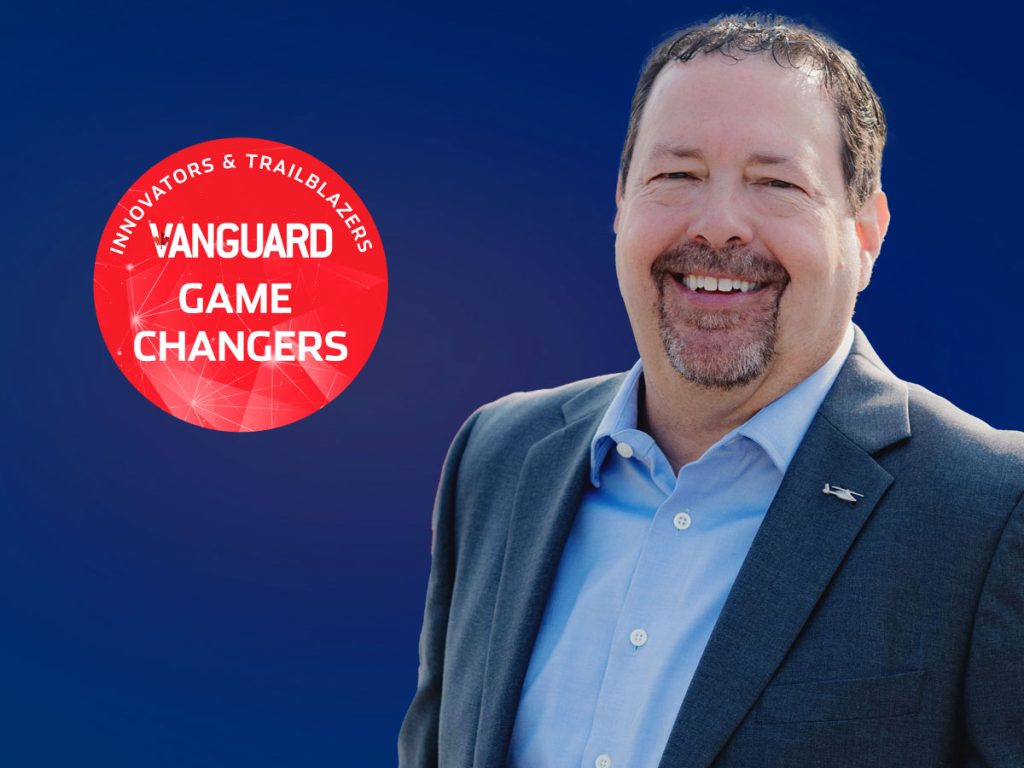Dwayne Charette, President of Airbus Helicopters in Canada, brings a wealth of experience rooted in both his service with the Canadian Armed Forces and a lifelong connection to the aerospace industry. Growing up with close ties to Fleet Aerospace, where his father worked as a QA inspector, Dwayne has witnessed firsthand the positive impact of Airbus’s work on critical global missions. Leading Airbus Helicopters in Canada, he focuses on fostering growth, strengthening partnerships within the Canadian defence sector, and ensuring that the company’s advanced manufacturing capabilities support Canada’s sovereignty and maritime safety, while reflecting a global commitment to security.
How did you start out in this industry and how has it brought you to where you are today?
My journey in the aerospace sector began with a period of service in the Canadian Armed Forces, which helped to provide a foundational understanding of the critical role that reliable aircraft play in demanding operational environments. I also grew up with a direct connection to the aerospace industry, as my father worked across the road from our current Fort Erie facility at Fleet Aerospace as a QA inspector. Progressing through various roles within Airbus, I witnessed firsthand the positive impact that our work has on countless lives through the vital missions our customers undertake, both locally here in Canada, and globally. Today, this understanding fuels my commitment to ensuring that we can provide rotorcraft solutions to best serve Canada’s needs.
What is your role at your organization today?
As President of Airbus Helicopters in Canada, my role is to strategically lead our organization toward continued growth, building upon the remarkable expansion of Airbus in Canada over the past four decades. A key focus today is strengthening our partnerships within the Canadian defence sector, ensuring our products and advanced manufacturing capabilities in Canada contribute directly to solutions that support national sovereignty and the safety of Canada’s maritime environment, and reflecting our global commitment to a safe and united world.
What was your most challenging moment?
One of the most challenging moments I faced was when taking over as President of Airbus Helicopters in Canada in August 2019, just months before the unprecedented COVID-19 crisis struck in 2020. This required an immediate and significant pivot in our operational strategy to ensure business continuity for our customers, particularly those in essential services like emergency medical services and aerial law enforcement, whose missions became even more critical during the pandemic.
What was your A-HA moment or epiphany that you think will resonate most with our reader, tell us that story.
My “aha” moment really struck me last year during our 40th anniversary celebration in Canada. Looking around at the people who have made our journey possible – our dedicated team here in Fort Erie, our valued partners, and especially our long-standing Canadian customers – and reflecting on the strong relationships we’ve cultivated over four decades, it was a deeply profound moment.
How has innovation become engrained in your organization’s culture and how is it being optimized?
Innovation is not just a department or a project at Airbus; it is deeply embedded in our culture and guides our strategic direction. At Airbus Helicopters, we have a clear strategy centered on continuous improvements in product quality and safety, enhancing cost-efficiency, and maximizing customer satisfaction. This focused approach ensures that our innovation efforts are aligned with the evolving needs of our customers.
What are some of the biggest impediments to innovation in your industry sector?
The increasing shortage of qualified pilots and experienced maintenance engineers across the aerospace sector is a major issue in the industry right now. Without skilled pilots and technicians, the adoption of new technologies can be impacted if there aren’t enough skilled personnel to operate and maintain these advanced systems effectively.
What is your parting piece of advice?
As we consider the future of aerospace in Canada, we should increasingly prioritize Canadian solutions for Canada. As a sovereign nation, fostering our independence requires a strong internal focus on developing our own capabilities. Continued investment in Canada and our talent will be crucial to ensuring our aerospace industry remains robust and globally relevant.

